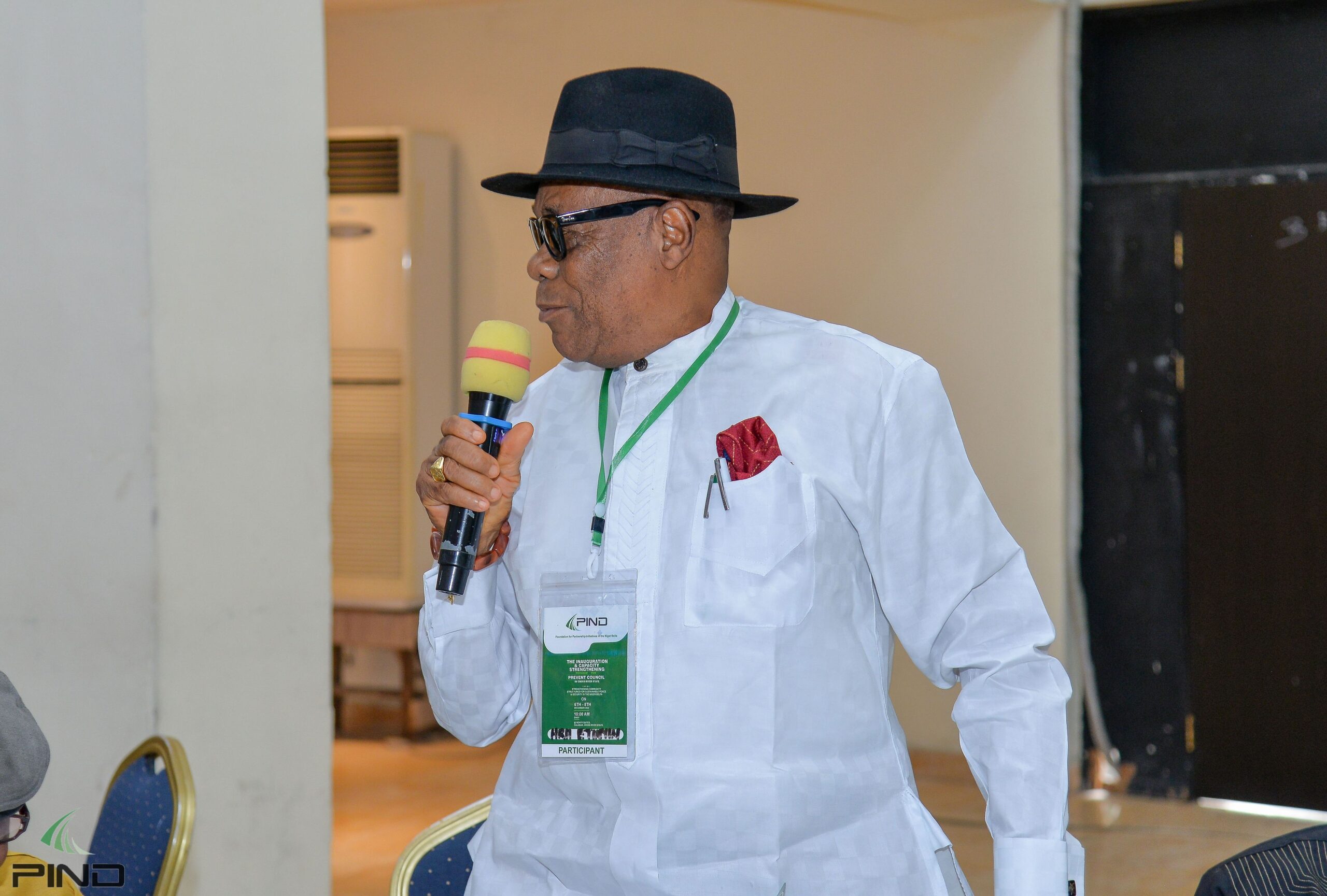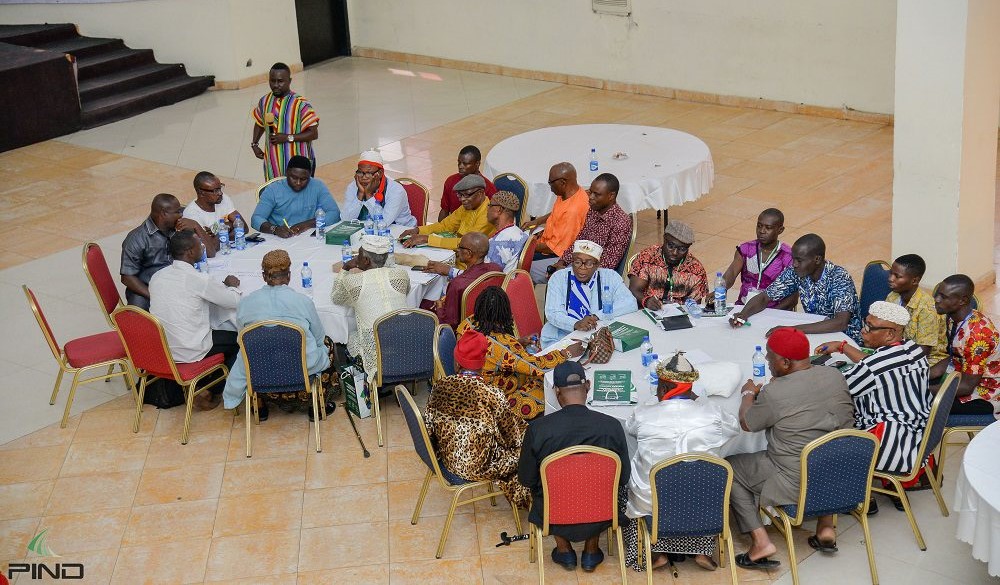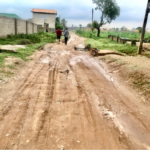In January 2017, at least four people were killed in intercommunal tensions between two border communities in Akwa Ibom and Cross River States.
Sparked by a longstanding rivalry over natural resources, the conflict between Oku Iboku village in Akwa Ibom State and Ikot Offiong in the south of Cross River State left many injured and saw roughly 20 houses reduced to rubble. For nearly two decades, the tensions simmered, causing residents—predominantly farmers—to abandon their farms for fear of being killed.
“There was an increase in poverty and youth unemployment, and the crisis affected the socio-economic development of the areas, “said Etinyin Otu Asuquo Mesembe VI, the paramount ruler of Odukpani. “Farming, fishing, palm wine tapping, and refining of local gin were halted.”
The Niger Delta, rich in natural resources, has been the powerhouse of Nigeria’s economic prosperity, accounting for over 80% of government revenue, 95% of export receipts and 90% of foreign exchange earnings.
However, states in the region—Cross River, Akwa Ibom, Edo, Bayelsa, Delta, and Rivers—have long been plagued by violence and insecurity, threatening the region’s economic development. Most of these states remain hotspots of boundary disputes between communities, gang violence, political thuggery and militancy.
For years, the Oku Iboku and Ikot Offiong hostilities defied traditional and political interventions. Despite legislators from the Cross River State House of Assembly and Akwa Ibom State House of Assembly moving an urgent motion in October 2017 to quell the tensions, the crisis persisted.
The PIND solution
A glimmer of hope emerged years later, in December 2022. The Foundation for Partnership Initiatives in the Niger Delta (PIND) inaugurated the Prevent Council, an initiative aimed at strengthening community peacebuilding structures. Traditional rulers from Cross River, Akwa Ibom, and Delta States, including Etinyin Otu Asuquo Mesembe VI, were inducted as members, tasked with the responsibility of serving as positive influencers and conflict mediators within their communities.
PIND, a nonprofit organisation committed to promoting peace and equitable economic growth in the Niger Delta, has long recognised the pivotal role traditional rulers play in maintaining peace and security. According to PIND’s Executive Director, Tunji Idowu, the Prevent Council seeks to foster social cohesion and peaceful coexistence, ensuring that no one is left behind.
“The central goal of the Prevent Council is to promote and sustain social cohesion and peaceful coexistence in society with no one left behind,” Idowu explained. “It emphasises that sustainable peace must involve multilateral engagements with traditional institutions as critical positive influencers and conflict mediators in their respective states and communities.”
Members of the Prevent Council undergo training in conflict prevention, mitigation, resolution, and early response mechanisms. They also learn about Alternative Dispute Resolution (ADR) techniques as a means of managing conflicts. In Cross River, five local governments—Yakurr, Obubra, Biase, Ikom, and Odukpani—benefited from the initiative. In Akwa Ibom, the Itu and Mbo local governments were included, while Ughelli North and Udu in Delta State also received support.
Chukwudi Njoku, PIND’s capacity building coordinator, explained that Cross River State had more benefiting local governments because it experienced more incidents of land and boundary-related conflicts.
Constituting an arbitration committee
Armed with the knowledge gained from the Prevent Council, Etinyin Otu Asuquo Mesembe VI took immediate action upon his return to Odukpani. He constituted an arbitration committee, comprising the heads of over 40 clans in Odukpani, with himself as chairman. The committee is responsible for adjudicating conflicts and restoring peace.
“After our resolution, I met with the paramount ruler of Itu LGA, Edidem Edet Inyang, and resolved the lingering conflict,” he recalled. “I told him that we could not continue to kill ourselves and perpetuate enmity since the government had yet to step in to make boundary adjustments.”
By 2022, the two warring communities had brokered an agreement, and peace was restored. The arbitration committee’s work didn’t stop there—conflicts in other parts of Odukpani, such as Eki East and West, Ito North and South Clans, many of which were chieftaincy-induced, were also addressed. Asuquo emphasised the importance of dialogue and peaceful resolution, warning that clan heads who refuse to engage in such processes risk losing government recognition.
“These approaches have helped us stabilise the clans and restore sanity. We let communities involved know that apart from the loss of lives during the crisis, it stops the government from bringing development,” he said. “Areas you could not enter freely have become accessible again.”
As a testament to his success, the state government has recruited Asuquo to intervene in crises beyond Odukpani, extending his peacebuilding efforts to Biase and other locations.
“The Prevent Council initiative has been helpful because we never thought of setting up a committee,” Asuquo said. “Our people now better understand the importance of peaceful coexistence and the need to resolve disagreements amicably.”

Expanding Peacebuilding Efforts
The positive impact of the Prevent Council has been felt across the region. For instance, New Netim in Odukpani LGA had endured years of land-related conflicts after being carved out of Akamkpa. The acting village head, Augustine Okpa, who was also trained by the Prevent Council, held meetings with local youths, urging them to embrace peace.
“I gave examples of communities that resorted to war and the consequences, “he said. “Since then, we have expressed our willingness to live in peace.”
According to Professor Raphael Offiong, the consultant facilitating the Conflict Prevent Council in Cross River State, the initiative has been instrumental in educating traditional rulers on conflict resolution and management, leading to restored peace and stability.
Dr. Emmanuel Chiwetalu Ossai, a Research Associate at Manchester Metropolitan University, commends PIND’s approach, noting that the foundation’s bottom-up strategy addresses the root causes of conflict by involving local communities in the peacebuilding process. However, he stresses the need for a balanced approach that also incorporates top-down strategies.
“Like the Niger Delta region, other regions are grappling with a variety of challenges which require initiative, such as PIND’s to entrench peace,” Ossai remarked. “The federal government must think of how to adopt similar approaches to solving conflict situations.”
Need for more training
Despite the successes, challenges remain. Professor Offiong points out the lack of regular intervention meetings at the community level and the emergence of new conflict drivers as significant hurdles. Although PIND organised another training session in April 2023, followed by community-level advocacy and reconciliation activities, Asuquo believes more needs to be done.
“I have always been the only one attending from the Odukpani Traditional Rulers Council, which has over forty clan heads,” he said. “There is a need to expand the training so that other leaders can also benefit. The leaders also need firsthand training to be able to intervene whenever there is a crisis.”
Funding is another challenge, with Offiong highlighting the need for continuous monitoring and evaluation of Prevent Council activities. He also emphasises the importance of expanding community training on livelihoods and alternative survival options, as conflicts are often rooted in economic struggle.
As the Niger Delta continues its journey towards peace, the efforts of the Prevent Council offer a beacon of hope. Through continued collaboration, training, and support, the region may finally overcome its turbulent past and secure a peaceful future for its communities.
In January 2017, intercommunal tensions between the Oku Iboku village in Akwa Ibom State and Ikot Offiong in Cross River State led to violent conflicts over natural resources, resulting in deaths, injuries, and the destruction of homes. This conflict, part of a larger pattern of violence in the resource-rich Niger Delta, disrupted local economies and exacerbated poverty and unemployment.
Efforts to quell these tensions saw little success until the Foundation for Partnership Initiatives in the Niger Delta (PIND) established the Prevent Council in December 2022. The Council trained traditional rulers in conflict resolution and peacebuilding, leading to successful arbitration and the restoration of peace in several communities. Local leaders, such as Etinyin Otu Asuquo Mesembe VI, took proactive roles in conflict mediation, forming arbitration committees and promoting dialogue.
While the Prevent Council has made significant strides in fostering peace, challenges remain, including the need for more extensive training and continuous funding. Despite these challenges, the initiative has provided a model for sustainable peacebuilding, emphasizing the importance of involving traditional institutions and local communities in conflict resolution.
PIND’s bottom-up approach addresses the root causes of conflict, but experts suggest a balanced strategy that includes both bottom-up and top-down interventions. Continued collaboration and support are essential for the Niger Delta region to achieve lasting peace and stability.






